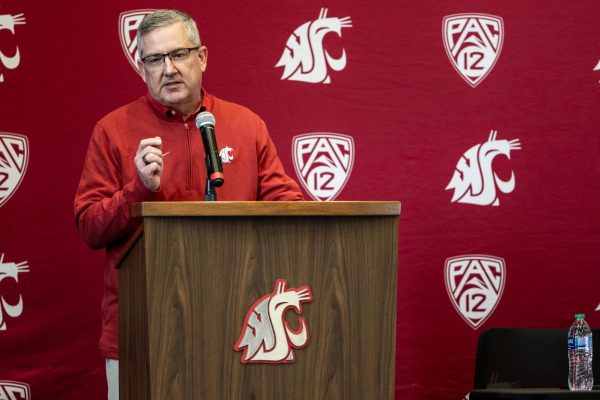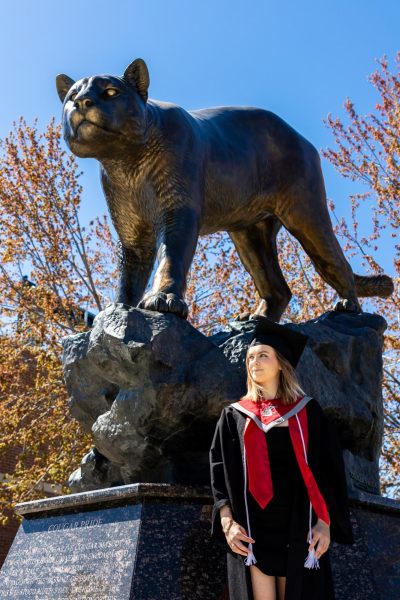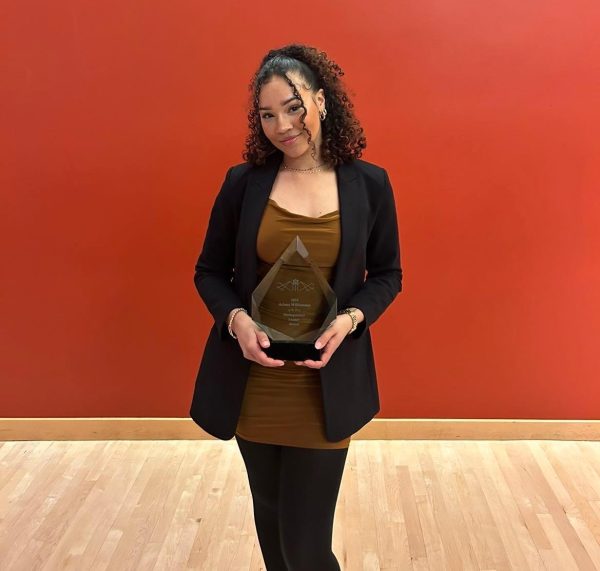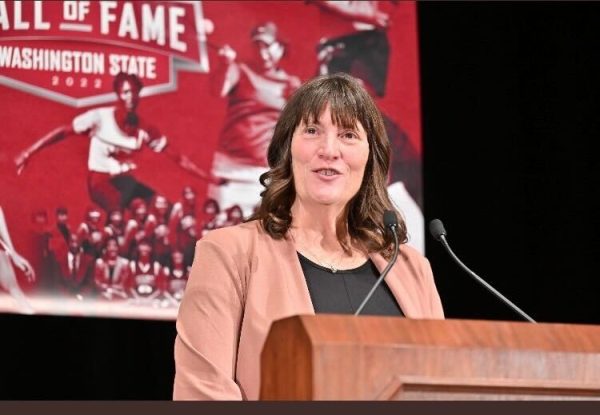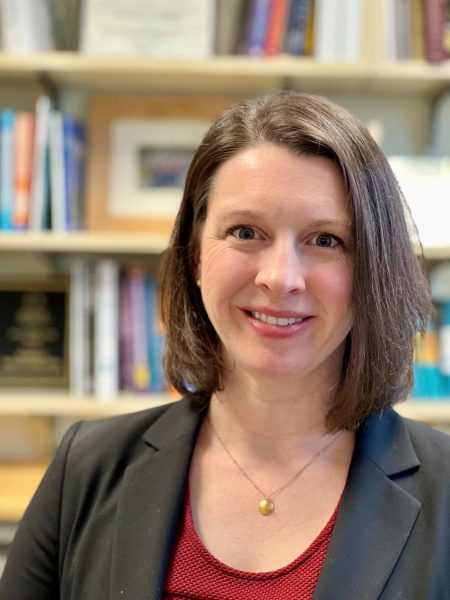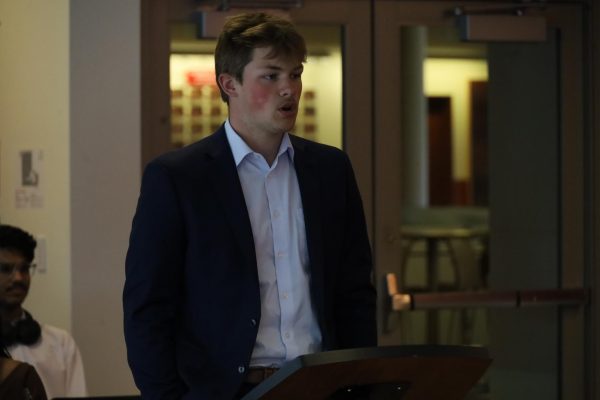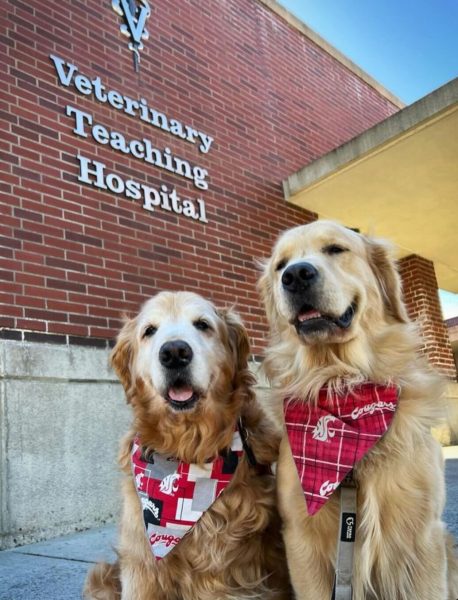Riding for hope
May 25, 2016
During the summer after his high school graduation in 2014, Mitch Stone watched admiringly as his brother and a team of bicyclists rode into Denver during a trip across the country to raise funds and awareness for people with disabilities.
At this stop, as at nearly every other along the way, riders interacted with local disabled people during a “Friendship Visit.” The visits are hosted by various types of organizations, such as work and care programs.
Mitch, a sophomore civil engineering major, recalls the Denver visit as a decisive moment in his life.
“I got to be a part of that and met some really cool people,” he said. “As soon as I saw that I was like ‘I gotta do this.’”
Pi Kappa Phi, Mitch’s and his brother Cameron’s fraternity, organizes the Journey of Hope annually as a national philanthropy event, bringing three teams of fraternity members together in three different cities along the West coast.
This year groups will set out from Seattle, San Francisco and Long Beach with the goal of reaching the opposite shore in 71 days.
Once Mitch saddles up on June 8, his venture, equal parts arduous and rewarding, will carry him 4,200 miles from Seattle to Washington, D.C., as he traverses 13 states.
For more than a year, Mitch has been fundraising for his trip, easily surpassing the minimum of $5,500. At about $8,000, he has done his part contributing to the overall goal of $650,000 for all three teams.
The money goes primarily toward grants for the organizations which sponsor the teams as they cross the U.S., such as the one in Denver.
Until that moment Mitch had never considered joining a fraternity, but the impact of the visit settled his mind easily.
Haley Watkins, a sophomore kinesiology major, Cameron’s girlfriend and longtime friend of both brothers, traveled to Denver for Cameron’s trip as well and said the friendship visit was an overwhelming experience.
“I kind of knew that it was going to be really different,” she said. “There were just so many families and children with disabilities that I was really caught off guard at first.”
She said Mitch’s sense of humor and optimism will be essential during his meetings with disabled people.
“Sometimes really serious situations can be stressful and intimidating for people,” Watkins said. “His way to make everything light all the time will be a strong suit for him.”
After adjusting to these kinds of interactions, their power begins to unfold. Cameron, a senior mechanical engineering major, said his 71 days were filled with more kindness than anything he experienced before or after in day-to-day life.
“You’re surrounded by total, pure goodness,” he said.
Journey of Hope veterans often speak of their most impactful connections from the trip. In the sea of new friends made during the journey, they say each rider will inevitably bond with at least one person intensely, grippingly, someone they will keep in contact with afterward.
This encounter is considered one of the main goals of Journey of Hope, one of the most life-altering, and Mitch is particularly excited for this aspect of the trip.
“I really want to connect with at least one person on a super deep level,” he said.
For Cameron this person was Bobby, from Billings, Montana. An ardent Mariner’s fan, Bobby sought out anyone from Washington and landed on Cameron.
The two immediately clicked during a dance party and spent the night hanging out, talking and doing the Macarena, Cameron said.
Though they don’t communicate frequently, Cameron and Bobby still exchange thoughts on how the Mariners are doing each season.
And of course, after 71 days with the same people, friendships are bound to form. To this day, Cameron’s team maintains a group chat which yields about 150 messages a day. Just three weeks ago he received a call from one of the riders asking him to be an usher at his wedding.
Despite the new relationships, he said the most challenging part of the trip was being separated from the world. The brothers ought to be well equipped for these conditions though.
Raised far from most friends in the woods of Capitol Forest, an area near Olympia known for its riding trails, Mitch and Cameron developed a bond that holds to this day.
“We were either gonna become best friends or kill each other,” Cameron said. “We definitely became best friends.”
And at their side was Jack. Diagnosed early in life with fragile X syndrome, a genetic disorder with autism-like symptoms, Jack was never one to let his troubles weigh on him.
“He’s the happiest guy in the world,” Mitch said. “He’s always laughing and smiling and cracking jokes with you. He’s one of the best people I know.”
Jack, a childhood friend, was Mitch and Cameron’s connection to the world of disabled people from a young age.
Watkins said this unique association taught the brothers early on how to interact with disabled people and instilled in them an awareness of what they face.
“Their personal relationship with Jack is something that’s really rare,” Watkins said. “Not many people have that in their life.”
An enormous motivation to both brothers, Mitch sees the Journey of Hope as an opportunity to do good for Jack and disabled people across the U.S.
In preparation for the trip Mitch has gone on many rides to Moscow, and during these last weeks he plans to cycle as much as possible. You don’t want to be worrying about biking rather than why you’re biking, he said, so keeping in shape is essential.
However, he isn’t worried about losing the will to ride.
“The motivation’s there,” he said, “it’s just keeping that in front of your mind.”
Mitch has always been driven to challenge himself and be the best he can be, Cameron said, and he is sure Mitch will excel physically when the going becomes strenuous.
At an average of 70 miles a day, the rides will be just that.
A brief overview of the routine: The 22 riders will rise at 5 a.m. from the floor of a high school gymnasium, a church or a hostel. With half a banana, a granola bar and a cup of cereal they will take to the road.
Rather than rest upon reaching that day’s destination, often the riders will cruise straight into a night of dancing, playing or simply spending time with the local disabled people until 9 or 10 p.m.
A short night’s sleep will lead into another long day of cycling, and with few exceptions this pattern will govern the trip.
The first leg of the trip is the most taxing, said Ryan Foerstel, chapter services coordinator. Traveling over the vastness of Wyoming and Montana, there is a week-long stretch of “century rides,” rides of 100 miles, just for the team to get from town to town.
Not only this, but the course is characterized by frequent mountain passes from Seattle to Colorado.
“Up until Denver is just kind of a beast,” Foerstel said. “It’s not really a forgiving start to the trip.”
Mitch’s family makes one of the rougher days more tolerable by providing snacks for the riders as they cross two passes going through Mount Rainier, preparing food at the middle and top of each.
And they will be waiting for him again on Aug. 13 in Washington, D.C., along with Cameron.
Being apart over the summer will be difficult for the constant companions, Watkins said, but when Mitch completes his ride they will have the experience to share.
“It’s cool that we’re gonna share that and have that to kinda look back on,” Cameron said.
But until that time, three months and 4,200 miles away, Mitch is concentrating on the ride and the mission behind it.
“I’ll just try to ride every mile,” Mitch said, pausing. “Make as big a difference as I can.”







